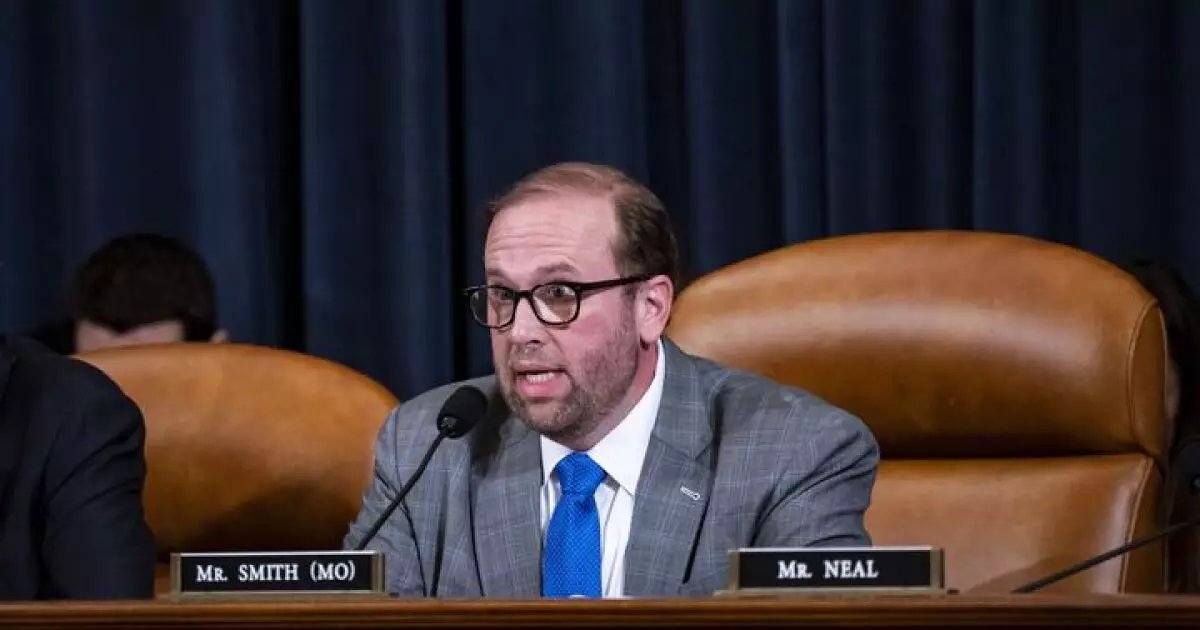The ongoing debate within the House Ways and Means Committee reflects a significant crossroads in U.S. tax policy, particularly spotlighting the implications of the Tax Cuts and Jobs Act (TCJA). As the 119th Congress delves into discussions, there looms a dichotomy between amplifying economic growth and curbing escalating national debt. This discourse is of paramount concern, especially for stakeholders within the municipal finance industry who fear that tax exemptions may be jeopardized as a means of counterbalancing the fiscal shortfall incurred by possible extensions of tax cuts initiated during the Trump administration.
In a testimony characterized by intense partisanship, Committee Chairman Jason Smith champions the narrative that past tax cuts catalyzed economic upswing, transforming the financial landscape after years of stagnation associated with the Obama administration. He posits a picture of prosperity marked by rising wages, plunging unemployment rates, and historic poverty reduction. Such assertions merge economic performance with favorable tax legislation; however, they gloss over critical concerns raised by counterparts.
The Democratic minority, led by Representative Richard Neal, offers a counter-narrative, contending that the economic gains observed were primarily financed through the ballooning of the national debt. According to Neal, advocating for additional tax cuts simultaneously while advocating for debt reduction presents an inherent contradiction. This encapsulates a broader ideological clash—whether fiscal policy should prioritize immediate economic stimulation or long-term fiscal responsibility.
From the perspective of municipal finance, certain provisions in the TCJA have become particularly controversial. The termination of advance refunding for tax-exempt bonds, alongside the imposition of a $10,000 cap on state and local tax (SALT) deductions, has intensified anxiety among municipal advocates. By potentially subjecting these critical financial instruments to increased taxation or limitation, the long-term viability of municipal projects could be cast into uncertainty.
As discussion unfolds, areas of bipartisan agreement begin to emerge, especially concerning the preservation of current tax rates for the middle class. Yet, adjustments to corporate tax rates and the SALT deduction remain contentious points. The Republican approach involved showcasing a lineup of witnesses—including small business owners and concerned parents—to emphasize the value of the TCJA as a driver of personal and collective economic enhancement. Their stance appears predicated on the narrative that the existing structure provides essential support amid economic recovery cycles.
In sharp contrast, Democrats are advocating for a tax policy reform aimed at diminishing the national debt through increasing taxes on higher income brackets and corporations. Representative Lloyd Doggett’s remarks underscore a pervasive movement within the party to recalibrate the fiscal landscape, arguing that the suppression of revenue through tax cuts isn’t sustainable. Thus, a call to recognize tax realities, as echoed by Doggett’s commentary on Steve Bannon’s earlier statements, illustrates a growing acknowledgment within certain Republican circles that tax cuts come with fiscal consequences.
The unfolding narrative will undoubtedly play a significant role in upcoming discussions surrounding the debt ceiling. The intersection of tax policy and national credit ratings invites scrutiny as the projected trajectory raises alarms regarding fiscal sustainability. Lawmakers must grapple with the ramifications of their policies, particularly as rising national debt emerges as a prominent issue on the national agenda.
On another front, the House Ways and Means Committee is also experiencing shifts in leadership that could bear implications for its approach to tax policy. Newly assigned subcommittee chairs bring fresh perspectives to pertinent areas such as health policy, oversight, and taxation. Notably, Representative Mike Kelly’s continued leadership over the Tax Subcommittee may result in sustained advocacy for preserving the TCJA’s core elements, shaping the committee’s strategic direction in negotiations.
As Congress embarks on this critical journey through complex tax policy, the implications will reverberate far beyond Capitol Hill. Whether legislative efforts can harmonize economic growth with increased fiscal responsibility remains a question that will frame debates in the 119th Congress and shape America’s financial future for years to come. With partisanship at its peak and a dichotomy surrounding the national debt, the need for consensus may never be more pressing. Thus, the ability of lawmakers to effectively navigate these challenges will determine the viability of the municipal finance sector, national economic stability, and the overall credibility of U.S. fiscal policy.

